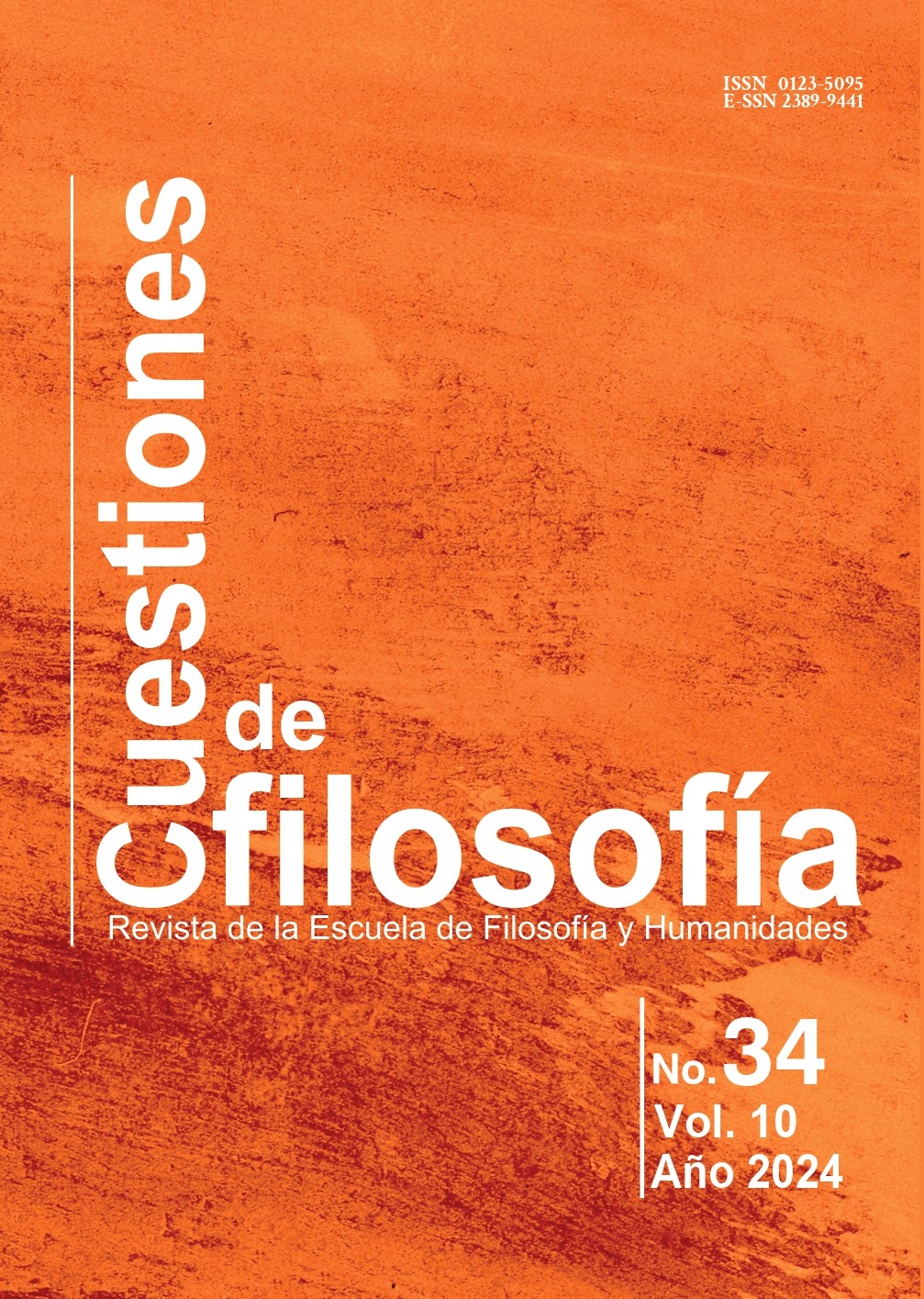Deleuze and feminism: debates on becoming-woman

Abstract
This article investigates the concept of becoming-woman and some of the debates it has provoked in the reception of Deleuze within the field of feminist and gender studies. Interpretations have been predominantly negative based on criticisms of various kinds: the meaning of the concept is unclear and undefined; it lacks political efficacy due to its disconnection with the concrete struggles of actually existing women; it conceals masculine and ethnocentric, androgynous or even patriarchal positions; it leads to a post-feminist horizon that dissolves women's identity and invisibilises their claims for recognition; it ignores the epistemological and political importance of sexual difference. The hypothesis proposed in this paper is that these criticisms can be discussed with arguments grounded in a rigorous re-reading of this concept in Deleuzian work, that recovers key distinctions (the molar and the molecular, the majority and the minority) and analyses the schizoanalytic perspectives that underpin his rejection of sexual difference and his critical view on some feminist struggles. This paper further explores where Deleuze can be positioned in the debate between dimorphism theorists and gender partisans and suggests the possibility of inscribing him in a post-genderist orientation.
Keywords
gender, women, subject, sexuality, difference
References
- Binetti, M. J. (2018). El devenir-mujer de todo devenir. Una lectura mater-realista de Mil mesetas. Revista de Filosofía, 43 (2), pp. 283-294. https://doi.org/10.5209/resf.62031
- Braidotti, R. (1991). Patterns of dissonance: a study of women and contemporary philosophy (E. Guild, Trad.). New York: Routledge.
- Braidotti, R. (1993). Discontinuous Becomings. Deleuze on the Becoming-Woman of Philosophy. Journal of the British Society for Phenomenology, 24 (1), pp. 44-55. https://doi.org/10.1080/00071773.1993.11644270
- Braidotti, R. (1994a). Toward a New Nomadism: Feminist Deleuzian Tracks; or, Metaphysics and Metabolism. C. Boundas and D. Olkowski (Eds.), Deleuze and the theatre of philosophy (pp. 157-186). London: Routledge.
- Braidotti, R. (1994b). Nomadic subjects: embodiment and sexual difference in contemporary feminist theory. New York: Columbia University Press.
- Braidotti, R. (1996). Nomadism with a difference: Deleuze’s legacy in a feminist perspective. Man and world, 29, pp. 305-314. https://doi.org/10.1007/bf01248440
- Braidotti, R. (2000). Sujetos nómades (A. Bixio, Trad.). Buenos Aires: Paidós.
- Braidotti, R. (2004). Feminismo, diferencia sexual y subjetividad nómade (A. Fischer Pfeiffer, Ed.) (M. L. Femenías y G. Ventureira, Trads.). Epub. Ed. Digital: Titivillus.
- Braidotti, R. (2005a). Metamorfosis. Hacia una teoría materialista del devenir (A. Varela Mateos, Trad.). Madrid: Akal.
- Braidotti, R. (2005b). Woman. A. Parr (Ed.), The Deleuze Dictionary (pp. 302-304). Edinburgh: Edinburgh University Press.
- Colebrook, C. (2000). Introduction. I. Buchanan and C. Colebrook (Eds.), Deleuze and Feminist Theory (pp. 1-17). Edinburgh: Edinburgh University Press.
- Colebrook, C. (2013). Modernism without Women: The Refusal of Becoming-Woman (and Post-Feminism). Deleuze Studies, 7 (4), pp. 427-455. https://doi.org/10.3366/dls.2013.0123
- Conley, V. (2000). Becoming-woman now. I. Buchanan and C. Colebrook (Eds.), Deleuze and Feminist Theory (pp. 18-37). Edinburgh: Edinburgh University Press.
- Deleuze, G. (1983). Nietzsche et la philosophie. Paris: PUF.
- Deleuze, G. (2002). Critique et clinique. Paris: Minuit.
- Deleuze, G. (2003). Deux régimes de fous. Textes et entretiens 1975-1995 (D. Lapoujade, Ed.). Paris: Minuit.
- Deleuze, G. (2004). L’Île déserte et autres textes. Textes et entretiens 1953-1974 (D. Lapoujade, Ed.). Paris: Minuit.
- Deleuze, G. (2005). Pourparlers 1972-1990. Paris: Minuit.
- Deleuze, G. (2015). Lettres et autres textes (D. Lapoujade, Ed.). Paris: Minuit.
- Deleuze, G. et Bene, C. (1979). Superpositions. Paris: Minuit.
- Deleuze, G. et Guattari, F. (1973). L’Anti-Œdipe. Capitalisme et Schizophrénie 1. Paris: Minuit.
- Deleuze, G. et Guattari, F. (2005). Qu’est-ce que la philosophie? Paris: Minuit.
- Deleuze, G. et Guattari, F. (2006). Mille Plateaux. Capitalisme et Schizophrénie 2. Paris: Minuit.
- Deleuze, G. et Parnet, C. (1996). Dialogues. Paris: Flammarion.
- Femenías, M. L. (2000). Sobre sujeto y género (Lecturas feministas desde Beauvoir a Butler). Buenos Aires: Catálogos.
- Grosz, E. (1994). A Thousand Tiny Sexes: Feminism and Rhizomatics. C. Boundas and D. Olkowski (Eds.), Deleuze and the theatre of philosophy (pp. 187-210). London: Routledge.
- Howie, G. (2008). Becoming-woman: a flight into abstraction. Deleuze studies, 2, pp. 83-106. https://doi.org/10.3366/e1750224108000378
- Jardine, A. (1985). Gynesis. Configurations of woman and modernity. New York: Cornell University Press.
- Lorraine, T. (1999). Irigaray and Deleuze: experiments in visceral philosophy. New York: Cornell University Press.
- Mengue, P. (2013). Faire l’idiot. La politique de Deleuze. Paris: Germina.
- Nigianni, C. (2009). Introduction. C. Nigianni and M. Storr (Eds.), Deleuze and Queer Theory (pp. 1-9). Edinburgh: Edinburgh University Press.
- Olkowski, D. (1999). Gilles Deleuze and the Ruin of Representation. Berkeley: University of California Press.
- Preciado, P. B. (2020). Yo soy el monstruo que os habla. Informe para una academia de psicoanalistas. Barcelona: Anagrama.
- Schmiedel, S. M. (2004). Contesting the Oedipal Legacy. Deleuzean vs Psychoanalytic Feminist Critical Theory. New Brunswick: Transaction Publishers.
- Sotirin, P. (2005). Becoming-woman. C. Stivale (Ed.), Gilles Deleuze. Key concepts (pp. 98-109). Trowbridge: Teddington Acumen.
- Stark, H. (2017). Feminist theory after Deleuze. London / New York: Bloomsbury.
- Wittig, M. (1979). Paradigm. G. Stambolian and E. Marks (Eds.), Homosexualities and French Literature (pp. 114–121). Ithaca (New York): Cornell University Press.